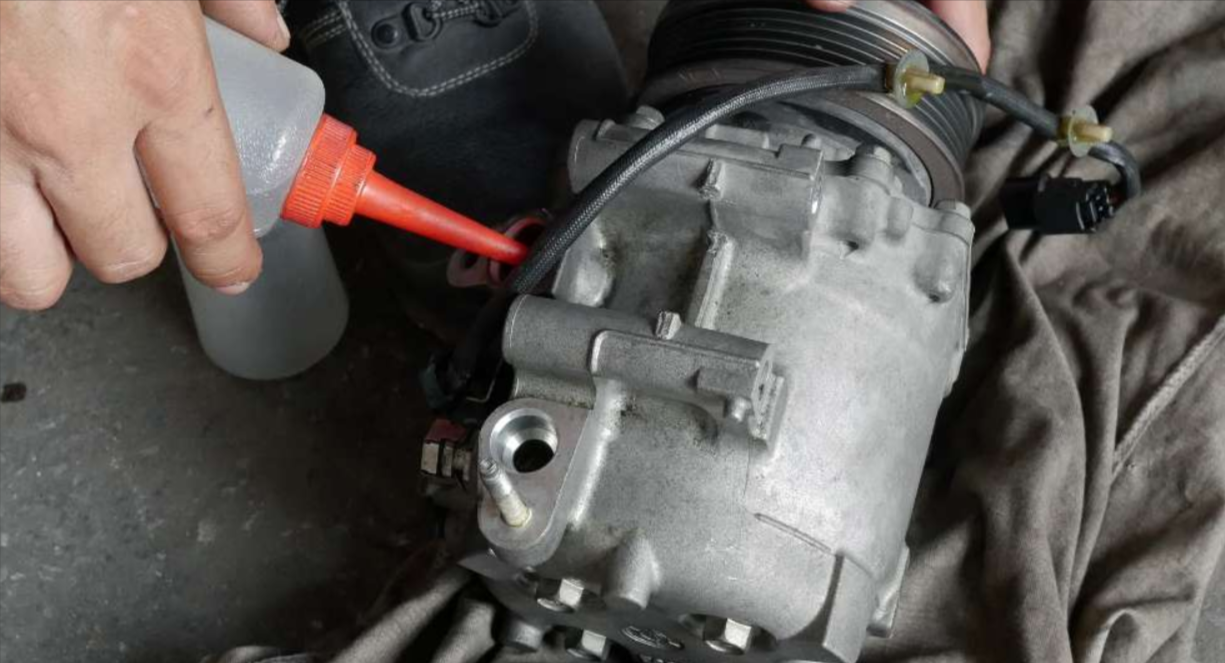When it comes to keeping your car’s interior cool during hot summer months, the air conditioning (AC) system plays a vital role. At the heart of this system is the AC compressor, responsible for circulating refrigerant through the system to remove heat and lower the cabin temperature. One crucial component within the AC compressor is the compressor control valve. This small but significant valve regulates the refrigerant flow and pressure within the system, ensuring the cooling process is as efficient as possible.
In this article, we’ll dive into the function of the car AC compressor control valve, its impact on refrigerant flow, and how it contributes to overall system performance and energy efficiency.
What is a Car AC Compressor Control Valve?
The car AC compressor control valve is a critical part of the air conditioning system that manages refrigerant pressure and flow into the compressor. It operates as part of the compressor assembly, which is typically located in the engine compartment of the vehicle. The role of the control valve is to ensure that the refrigerant is delivered to the compressor at the right pressure and flow rate. This allows the AC system to function optimally, delivering the necessary cooling performance while also avoiding damage to the components due to excessive pressure or flow.
How the Compressor Control Valve Regulates Refrigerant Flow
The refrigerant in a car’s AC system undergoes a continuous cycle of compression, condensation, expansion, and evaporation. In the compressor, the refrigerant is compressed, which increases its pressure and temperature. This high-pressure refrigerant is then passed through the condenser, where it cools down before entering the evaporator, where it absorbs heat from the cabin air.
The compressor control valve regulates the amount of refrigerant that enters the compressor during its operation. If too much refrigerant is allowed into the compressor, it could overwhelm the system, leading to inefficient cooling, increased energy consumption, or even damage to the compressor. Conversely, if too little refrigerant is allowed into the system, the compressor might not operate efficiently, which would reduce the cooling performance.
The control valve uses pressure sensors and various control mechanisms to determine the appropriate amount of refrigerant that needs to be supplied to the compressor. This regulation ensures that the compressor works under optimal conditions, preventing it from running at too high or too low a pressure, both of which can cause system inefficiency and increased wear on the components.
Impact on System Efficiency and Performance
The control valve plays a key role in the overall efficiency of the vehicle’s AC system. By accurately controlling the refrigerant flow, it helps maintain the ideal pressure in the system, which in turn ensures that the compressor operates as efficiently as possible. Here’s how this impacts both the performance and energy consumption of your car’s AC system:
- Energy Efficiency: When the compressor receives the right amount of refrigerant at the correct pressure, it doesn’t have to work harder than necessary. This leads to reduced energy consumption, which can be particularly important when running the AC for long periods, especially in hot weather. The control valve ensures the system isn’t overworking, improving overall fuel efficiency.
- Consistent Cooling: One of the primary functions of the compressor control valve is to maintain consistent cooling performance. If the refrigerant flow is improperly regulated, the AC system might cycle on and off, struggle to cool the cabin effectively, or provide uneven cooling. The control valve prevents these issues by maintaining steady refrigerant flow, ensuring that the system cools the cabin evenly.
- Prevents Over-Pressurization: If the pressure in the AC system becomes too high, it can lead to severe damage, including rupturing hoses, damaging the compressor, or causing leaks. The control valve ensures that the pressure doesn’t exceed safe levels, which helps protect the system’s components and extends the lifespan of the AC unit.
- Enhanced Longevity of the AC System: By regulating the flow of refrigerant and ensuring the compressor operates under optimal conditions, the control valve contributes to the longevity of the entire AC system. Preventing excessive pressure and flow reduces wear and tear on the components, minimizing the need for repairs and extending the life of the AC system.
Signs of a Failing Compressor Control Valve
Like any other component, the compressor control valve may wear out over time. If it starts malfunctioning, it can lead to a variety of issues with the AC system. Some common signs of a failing compressor control valve include:
- Inconsistent cooling: If you notice that the air conditioning isn’t cooling the car evenly or effectively, it may be due to an issue with the refrigerant flow.
- AC system not turning on: If the compressor control valve is stuck in the closed position, it may prevent refrigerant from reaching the compressor, causing the AC system to fail to turn on.
- Strange noises: Whining, grinding, or clicking noises coming from the compressor may indicate issues with the control valve or the compressor itself.
- Leaking refrigerant: A malfunctioning control valve can cause the refrigerant to leak, leading to low refrigerant levels and reduced cooling performance.
If any of these symptoms occur, it’s important to have the control valve checked by a professional mechanic to avoid further damage to the AC system.
Conclusion
The compressor control valve plays an indispensable role in the efficient operation of a car’s AC system. By regulating refrigerant flow and pressure, it ensures the compressor works at optimal levels, contributing to consistent cooling, energy efficiency, and the longevity of the system. Maintaining the control valve and promptly addressing any issues can ensure that your AC system provides reliable, efficient cooling throughout the life of the vehicle.


